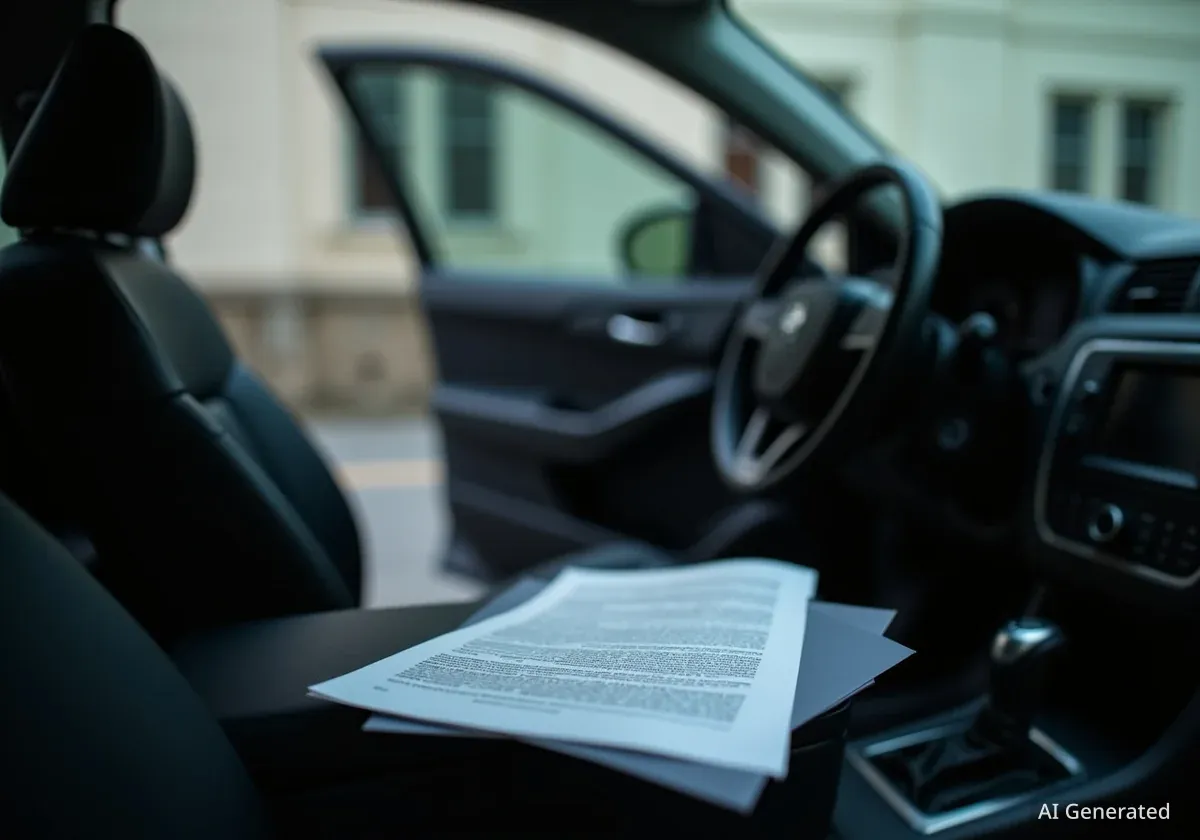The High Court of Bern has acquitted a companion who supervised a learner driver found to have excessive THC in his blood. The court ruled that a general obligation for companions to inquire about drug use is unrealistic. This decision overturns the general prosecutor's argument that a companion shares the same responsibility as the driver.
The incident, which occurred in December 2022, involved a 53-year-old learner driver. Police stopped him at a motorway entrance for a routine check. A rapid drug test was positive, and a subsequent blood test revealed THC levels more than double the legal limit. The man was convicted for driving while impaired.
Key Takeaways
- Bern's High Court acquitted a learner driver's companion.
- The companion was not required to actively ask about drug use.
- The court deemed a general inquiry duty "unrealistic."
- The Canton of Bern will cover nearly 10,000 Swiss francs in court costs.
Learner Driver's THC Levels Exceed Legal Limit
In December 2022, a 53-year-old learner driver faced legal consequences after a police stop. Officers conducted a drug test during a check at a motorway entrance. The test yielded a positive result for THC, the primary psychoactive component in cannabis.
Further analysis of a blood sample confirmed significant impairment. The driver's THC concentration was more than twice the legal limit. This finding led to his conviction for operating a vehicle while unfit to drive.
"A joint smoked the evening before had serious consequences for a 53-year-old learner driver in December 2022," reported the Bernese newspaper, highlighting the immediate cause of the legal proceedings.
Fact Check
- Incident Date: December 2022
- Driver's Age: 53 years old
- THC Level: More than double the legal limit
- Legal Outcome for Driver: Convicted for driving while impaired
Companion Also Faced Charges
The legal case extended beyond the learner driver. His companion, who was present during the private driving lesson, also faced charges. The Public Prosecutor's Office argued that a supervising companion holds similar responsibility to the driver.
Prosecutors contended that companions should actively inquire about a learner driver's consumption of alcohol, drugs, or medication. This proactive approach, they argued, is necessary to ensure safety during driving instruction.
Context of Learner Driving in Switzerland
In Switzerland, a learner driver must be accompanied by a person who is at least 23 years old and has held a valid driving license for the category of vehicle for at least three years, without having had it revoked. The companion must be able to reach the handbrake. The legal framework aims to ensure safety and proper instruction during the learning phase.
Regional Court Acquits Companion
The Regional Court of Bernese Jura-Seeland initially heard the case against the companion. The court did not agree with the prosecution's view regarding the companion's responsibility. It found no evidence that the companion should have recognized the driver's drug use.
The regional court concluded that imposing a general duty to question learner drivers about drug consumption would be impractical. This decision set a precedent for the subsequent appeal.
High Court Upholds Acquittal
The Public Prosecutor's Office appealed the regional court's decision. However, the High Court of Bern confirmed the acquittal. The High Court supported the lower court's reasoning, stating that a general obligation to ask about drug use is "unrealistic" and disproportionate.
The court highlighted that responsibility cannot rest solely on companions. This is especially true when supervising older or more experienced learner drivers. The ruling suggests a nuanced view of a companion's role.
- Initial Ruling: Regional Court acquitted the companion.
- Appeal: Public Prosecutor's Office appealed the decision.
- Final Ruling: High Court upheld the acquittal.
Conflicting Accounts of Driver's Condition
During the legal proceedings, there were conflicting reports about the learner driver's condition at the time of the incident. The companion's defense stated she was unaware of the learner driver's habits, according to the Bernese newspaper.
Police officers who interacted with the driver described him as appearing apathetic and slurring his speech. However, other official records presented a different picture. These records noted the driver was oriented and only slightly impaired.
The High Court acknowledged these inconsistent statements. This conflicting evidence likely played a role in the court's decision to acquit the companion.
Key Legal Principle
The High Court's decision emphasizes that imposing a broad, active inquiry duty on companions regarding a learner driver's substance use is not practical or reasonable in all circumstances. This sets a limit on the extent of a companion's liability.
Canton of Bern Bears Court Costs
The legal process has concluded with financial implications. The Canton of Bern will cover the costs of the proceedings. These costs amount to nearly 10,000 Swiss francs.
This outcome underscores the court's final determination that the companion was not legally responsible for the learner driver's impairment. The decision reinforces the principle that specific evidence of negligence is required for a companion to be held liable.
The case highlights the complexities of liability in supervised driving situations. It clarifies the boundaries of a companion's legal duty in Switzerland.




